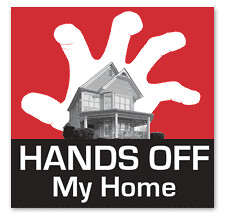Winston-Salem Journal Lisa Locklear told state elections officials yesterday what it's like to work in a convenience store - especially one that makes cash payouts of $1,400 on video-poker machines, and where clerks can afford to give $1,500 to House Speaker Jim Black's campaign.
Locklear, who worked as a clerk in three stores - in Maxton, Rowland and Laurinburg - said that in 2002, store owner Jamie Barfield asked her to donate to Black's campaign. Robert Dunlap, a representative from video-poker supplier Southland Amusements, looked on.
"Jamie Barfield asked me to write a check to Jim Black, but I didn't know who he was at the time," Locklear said. "She just gave me the money and told me to go deposit it and give her a check."
So the store clerk who made $300 a week wrote Black's campaign a check for $1,500 on April 30, 2002, and another for $1,000 on July 15, 2002. But she withdrew the money from her account before the second check to the campaign could be credited, so it bounced. The rest can be found in the extended section.
Locklear also testified that although state law limits video-poker payouts to $10 worth of merchandise, at times she paid out $1,000 in cash to video-poker winners. She said she once paid a winner $1,400 with cash that she kept in a fanny pack worn around her waist.
Locklear's testimony, and that of a used-car dealer in Rockingham who said he did not donate the $1,000 that he was reported to have given to Black's campaign, came as the State Board of Elections wades into a complaint about more than $120,000 that went to Black's 2002 campaign from the video-poker industry.
Thomas Crowley, the car-lot owner, told the board that Leon Johnson, the owner of a Rockingham convenience store with video-poker machines, asked in July 2002 if he could use Crowley's name for a $1,000 donation.
"I didn't give no money," Crowley said. "I did not give no $1,000. He just asked me would I sign the paper to keep the poker machine. I said, 'Yeah.' He said, 'It won't cost you nothing.'"
But Barbara Gaithings of Hamlet said she decided to give Black $1,000 after discussing it with Johnson, and that Johnson did not give her the money. She told the board that she makes $1,105 a month in disability payments and spends $20 to $25 a week playing video poker.
"He was going to ... try to keep video poker and make it legal," she said of Black.
"I went home and checked in my drawer, and I didn't have but $800. And I went and borrowed $200 from my son," Gaithings said. "It was my money."
Gaithings said she left a check, with the payee line blank, at Johnson's store.
Investigators from the elections board have not been able to track down Johnson.
Barfield, the owner of the stores where Locklear worked, said that even though she made as much money on her video-poker machines as she did on the merchandise in the stores, she never asked Locklear to donate to Black and she never gave her $2,500 to give to Black's campaign.
As for the $1,000 payouts that Locklear testified that she paid, "She was instructed to pay $10 in merchandise - no cash, no tobacco products and no alcohol," Barfield said.
Despite the denials from store owners and video-game suppliers yesterday, board members clearly suspect that the money for donations to Black's campaign came from someone other than those named in Black's report.
"It appears to me that there is some possibility that someone is supplying money to be given to the Black campaign," said Larry Leake, the elections board's chairman. "If my theory is right, we're going to have to have somebody willing to tell us the truth."
Leake was careful to say that there is no indication that Black or his campaign orchestrated the scheme of donations to his campaign.
"We have no evidence that Speaker Black was involved with this fundraising effort in any way. The moneys went to his campaign," he said.
But Leake was clearly skeptical of Gaithings' testimony as well as that of some others:
? Faye Maness Honeycutt of Rockingham makes $10.75 an hour at Sara Lee Hosiery, yet she made a $1,000 contribution to Black's campaign at the request of Lori Bullard, Johnson's stepdaughter, a colleague at work. Honeycutt said she used money she kept for emergencies.
"You never know what will come up. I keep money at home," she said.
"I've been a lawyer for 31 years, examined a lot of witnesses," Leake told her. "And I have seldom found one less believable."
? Lori Bullard Brigman, Johnson's stepdaughter, said that Johnson told her that he was giving $1,000 to Black's campaign. "I heard Jim Black supported the lottery and video-poker machines," she said. "I had a thousand to give at home, so I gave it."
Leake noted how many donations went from Rockingham video-poker players and store owners to Black's campaign on July 16, 2002. "The bank deposits sure swelled that day in your town," he told Brigman.
? Wayne Moss, who has video-poker machines at his cigarette outlet in Rockingham, testified that he gave his son $2,700 to help cover a $1,000 contribution that he asked him to write to the Black campaign.
"I figured out my whole mistake. This is the first time I've ever given money to a Democrat, and I've had trouble ever since," Moss told Leake.
Ken Bell, an attorney for Black who monitored the hearing, told Leake that Black's campaign wants to release any money that the board determines was raised illegally.
"If we've got money that was raised inappropriately, tell us so we can get rid of it," Bell said. "That's been our position since the complaint was filed two years ago."
While the N.C. Senate has voted repeatedly to ban video poker in North Carolina, Black has defended the industry, saying that it supports 2,000 to 3,000 jobs. Black has backed a state law that allows as many as three machines at a store.
Bell said that although many people believe that politicians are bought with campaign donations, some people donate because they agree with a politician's stance.
"Anybody who thinks Jim Black's vote can be bought with a political donation is making a grave mistake," Bell said. "Any suggestion that Jim Black's vote can be bought with a contribution is a damn lie." |













